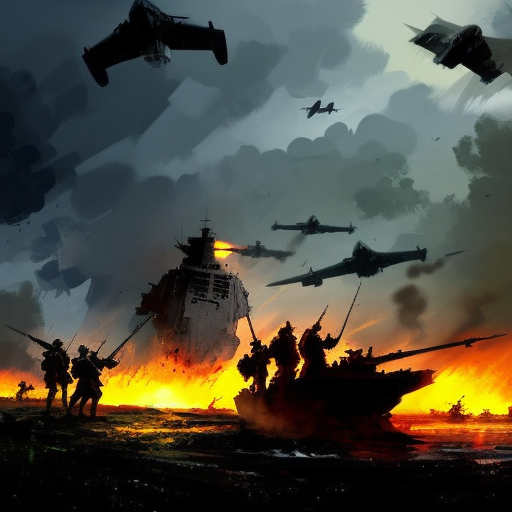Summary:
Band of Brothers: E Company, 506th Regiment, 101st Airborne from Normandy to Hitler’s Eagle’s Nest is a gripping non-fiction book by Stephen E. Ambrose that tells the incredible story of Easy Company, a group of American paratroopers who fought in World War II. From their training in Georgia to their harrowing experiences on the front lines in Europe, this book offers a detailed and personal account of the bravery, camaraderie, and sacrifices made by these extraordinary men.
The Journey Begins: Training and Preparation
The book begins by introducing the reader to the men of Easy Company, who were part of the 506th Regiment of the 101st Airborne Division. Ambrose takes us through their rigorous training in Toccoa, Georgia, where they endured grueling physical and mental challenges to prepare for the war ahead. The author highlights the importance of their training in forging the strong bonds and unwavering dedication that would define Easy Company throughout their wartime experiences.
The Trials of Combat: From Normandy to the Bulge
As the war escalates, Easy Company is deployed to various locations across Europe, including their legendary jump into Normandy on D-Day. Ambrose vividly describes the chaos and confusion of the battlefield, as well as the courage and resilience displayed by the soldiers. From the intense fighting in Carentan to the grueling winter campaign in the Ardennes during the Battle of the Bulge, the men of Easy Company face unimaginable challenges and witness the horrors of war firsthand.
The Final Push: Victory and Beyond
As the war draws to a close, Easy Company continues their march across Europe, liberating concentration camps and capturing Hitler’s Eagle’s Nest in Berchtesgaden. Ambrose depicts the emotional toll of war on the soldiers, as they grapple with the loss of comrades and the atrocities they have witnessed. Despite the hardships, Easy Company remains steadfast in their mission and emerges as a symbol of heroism and resilience.
Throughout the book, Ambrose weaves together personal accounts, interviews, and historical research to create a compelling narrative that honors the bravery and sacrifices of the men of Easy Company. He highlights the bonds of brotherhood that develop among the soldiers, emphasizing the importance of camaraderie and teamwork in the face of adversity. Ambrose also explores the leadership qualities of officers such as Captain Herbert Sobel and Major Richard Winters, who played pivotal roles in shaping the success of Easy Company.
Key takeaways from Band of Brothers include:
- The power of camaraderie and teamwork in overcoming challenges
- The importance of strong leadership in times of crisis
- The resilience and bravery of soldiers in the face of unimaginable horrors
- The lasting impact of war on the mental and emotional well-being of veterans
As Major Richard Winters once said, “Wars do not make men great, but they do bring out the greatness in good men.” Band of Brothers is a testament to the greatness that can be found in ordinary individuals when faced with extraordinary circumstances. It serves as a reminder of the sacrifices made by those who fought for freedom and the enduring bonds forged in the crucible of war.












